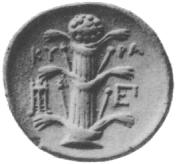The South African parliament has voted overwhelmingly to change the nation’s constitution to allow the government to expropriate land without compensation:
The motion was brought by Julius Malema, leader of the radical Marxist opposition party the Economic Freedom Fighters, and passed overwhelmingly by 241 votes to 83 against. The only parties who did not support the motion were the Democratic Alliance, Freedom Front Plus, Cope and the African Christian Democratic Party.
It was amended but supported by the ruling African National Congress and new president Cyril Ramaphosa, who made land expropriation a key pillar of his policy platform after taking over from ousted PM Jacob Zuma earlier this month.
“The time for reconciliation is over. Now is the time for justice,” Malema was quoted by News24 as telling parliament. “We must ensure that we restore the dignity of our people without compensating the criminals who stole our land.”
According to Bloomberg, a 2017 government audit found white people owned 72 per cent of farmland in South Africa.
ANC deputy chief whip Dorries Eunice Dlakude said the party “recognises that the current policy instruments, including the willing-buyer willing-seller policy and other provisions of Section 25 of the Constitution may be hindering effective land reform”.
ANC rural affairs minister Gugile Nkwinti added: “The ANC unequivocally supports the principle of land expropriation without compensation. There is no doubt about it, land shall be expropriated without compensation.”
Thandeka Mbabama from the Democatic Alliance party, which opposed the motion, said there was a need to right the wrongs of the past but expropriation “cannot be part of the solution”.
“By arguing for expropriation without compensation, the ANC has been gifted the perfect scapegoat to explain away its own failure,” she said in a statement.
“Making this argument lets the ANC off the hook on the real impediments — corruption, bad policy and chronic underfunding. Expropriation without compensation would severely undermine the national economy, only hurting poor black people even further.”
Samizdata‘s Johnathan Pearce comments on the move:
The unfolding of South Africa’s history is a tragedy, and it is easy to see why there is an element of “score-settling” at work here. Apartheid, let it not be forgotten, was introduced in the late 1940s at the behest to some degree of the white trade union movement, keen to bolster its bargaining power. Even if you were a private entrepreneur who wanted to hire non-whites for certain jobs, for example, you couldn’t. (Minimum wage laws operated in ways that hurt, not helped, non-whites.) The system was as absurd and vile as the Jim Crow laws of the US, or other examples of serfdom and oppression down the ages. It had to go; for anyone who supports a free market economy, apartheid and its cousins are absurd as well as wrong.
But the solution of seizing white-owned land, regardless of the honesty or provenance of it, and giving it to people via a political carve-up, turns the injustices inherited from the old regime on their head, creating a new form of racism. Two wrongs do not make a right. And further, one suspects that the land seizures are an attempt to deflect attention from the failings of the existing regime. Compare and contrast how, for example, the “Asian tigers” threw off their old colonial masters and focused on getting seriously rich, not least by respecting property rights. And wherever one looks, there does seem a pretty tight correlation between respect for property rights – indeed their very existence – with prosperity and happiness more broadly. Hernando de Soto has made something of a career pushing the point that the world needs more property rights, spread among more people. (Check out this recent lecture by Niall Ferguson on the same sort of issue.)




